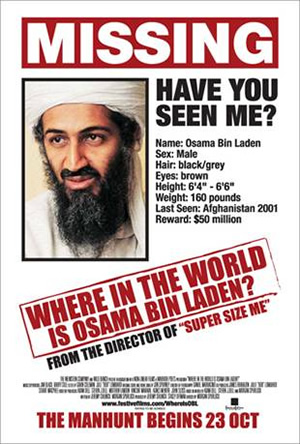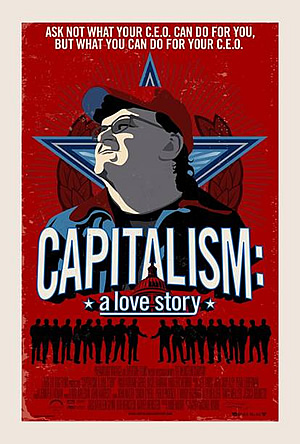WHERE TO INVADE NEXT (2015)
Genre: Documentary
Director: Michael Moore
Cast: Michael Moore
Runtime: 2 hrs 1 min
Rating: PG
Released By: Shaw
Official Website: http://wheretoinvadenext.com
Opening Day: 28 April 2016
Synopsis: Where to Invade Next is an expansive, rib-tickling, and subversive comedy in which Academy Award®-winning director Michael Moore, playing the role of “invader,” visits a host of nations to learn how the U.S. could improve its own prospects. The creator of Fahrenheit 9/11 and Bowling for Columbine is back with this hilarious and eye-opening call to arms. Turns out the solutions to America’s most entrenched problems already exist in the world—they’re just waiting to be co-opted.
Movie Review:
This reviewer was a little ashamed while watching this movie. Without much prior reading, he went into the preview theatre expecting another critical, cynical and occasionally funny look at a topic that is distant and somewhat irrelevant to our safe society. Some 20 minutes into the film, this writer thought to himself: What if Michael Moore had come to Singapore and asked us about our system of running things?
Moore, who first caught our attention with Bowling for Columbine (2002), is no stranger to making documentaries which deal with serious issues like globalisation, large corporations and weapon ownership. After taking home the Academy Award for Best Documentary feature, he went on to direct Fahrenheit 9/11 (2014), a Palme d Or winning film which explores the darker issues of the George W Bush presidency, as well as shedding light on what mainstream media won’t tell you about the War on Terror.
Following Sicko (2007) and Capitalism: A Love Story (2009), Moore went off the radar for a while. Six years later, he is back with his latest work, and one that covers something so macro, you can’t put a finger on what the left wing political activist wants viewers to take home with.
We know how America is a regarded as a powerful country, and how it is often seen as an influential country calling the shots in many aspects - be its culture, economics and social norms amidst others. In this 121 minute documentary, Moore comes up with this creative concept of “invading” other countries. He “invades” countries like Tunisia, Italy, France and Portugal where alternative governance methods are in palace. Through these visits, he goes on to prove a point that solutions to America’s most entrenched problems are also present in other countries, and by co opting these approaches, America can be saved.
So why which part of the film was a poignant point for this reviewer? After a short introduction about the concept of “invasion”, Moore’s film talks about how extended holidays are not common back home. This lies in the fundamental issue - that not every country adopts a manpower system where employees have the right to large amounts of annual leave from work. Yup, what we have here is regarded a generous amount of off work days - let’s not even get started on long lunch hours. Does this lead to better efficiency and higher productivity for organisations? Will there be better output if employees do not spend so much time away from work?
This is just one of the issues covered. Issues like education and law are also topics explored in countries that Moore “invades”. You hear the CEO of motorcycle designer and manufacturer Ducati talk about how his staff is enjoying the welfare given, the Minister of Education in Finland talk about how things have worked great with little homework, and Iceland’s former president Vigdis Finnbogadottir talk about how the country’s legal system.
As with all documentaries, we advise you not to look for objectivity. This genre is presented from one side (the director has a point to prove, right?), and any logic or argument you seek will be pointless. What we think you should do is just be entertained, and be aware of how things work out in other parts of the world.
Movie Rating:




(First, deal with the fact that political documentaries are one-sided, and you'll be duly entertained and informed with Michael Moore's latest work)
Review by John Li
You might also like:





